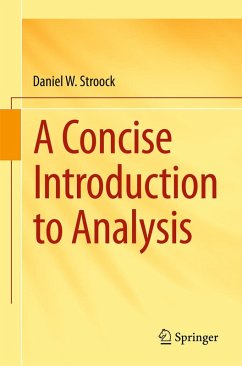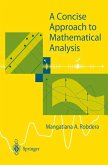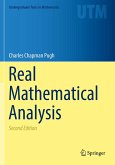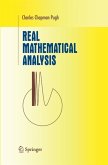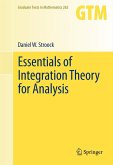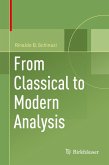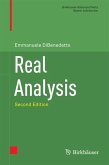This book provides an introduction to the basic ideas and tools used in mathematical analysis. It is a hybrid cross between an advanced calculus and a more advanced analysis text and covers topics in both real and complex variables. Considerable space is given to developing Riemann integration theory in higher dimensions, including a rigorous treatment of Fubini's theorem, polar coordinates and the divergence theorem. These are used in the final chapter to derive Cauchy's formula, which is then applied to prove some of the basic properties of analytic functions.
Among the unusual features of this book is the treatment of analytic function theory as an application of ideas and results in real analysis. For instance, Cauchy's integral formula for analytic functions is derived as an application of the divergence theorem. The last section of each chapter is devoted to exercises that should be viewed as an integral part of the text.
A Concise Introduction to Analysis should appeal to upper level undergraduate mathematics students, graduate students in fields where mathematics is used, as well as to those wishing to supplement their mathematical education on their own. Wherever possible, an attempt has been made to give interesting examples that demonstrate how the ideas are used and why it is important to have a rigorous grasp of them.
Dieser Download kann aus rechtlichen Gründen nur mit Rechnungsadresse in A, B, BG, CY, CZ, D, DK, EW, E, FIN, F, GR, HR, H, IRL, I, LT, L, LR, M, NL, PL, P, R, S, SLO, SK ausgeliefert werden.
"The uniqueness of the order and choice of topics makes the book an excellent resource and/or supplement to an introductory analysis course. Summing Up: Highly recommended. Upper-division undergraduates, graduate students, and researchers/faculty." (J. T. Zerger, Choice, Vol. 54 (1), September, 2016)
"Goal of this book is to establish the principles of mathematical analysis both for functions of real variables and for functions of a complex variable in the shortest possible way. ... book can be read and understood without resorting to any external reference since the author provides detailed proofs of all results. ... in each chapter one can find several examples of the theory discussed as well as a list of working exercises that will be useful to the reader." (Julià Cufí, zbMATH 1337.26001, 2016)
"Goal of this book is to establish the principles of mathematical analysis both for functions of real variables and for functions of a complex variable in the shortest possible way. ... book can be read and understood without resorting to any external reference since the author provides detailed proofs of all results. ... in each chapter one can find several examples of the theory discussed as well as a list of working exercises that will be useful to the reader." (Julià Cufí, zbMATH 1337.26001, 2016)

